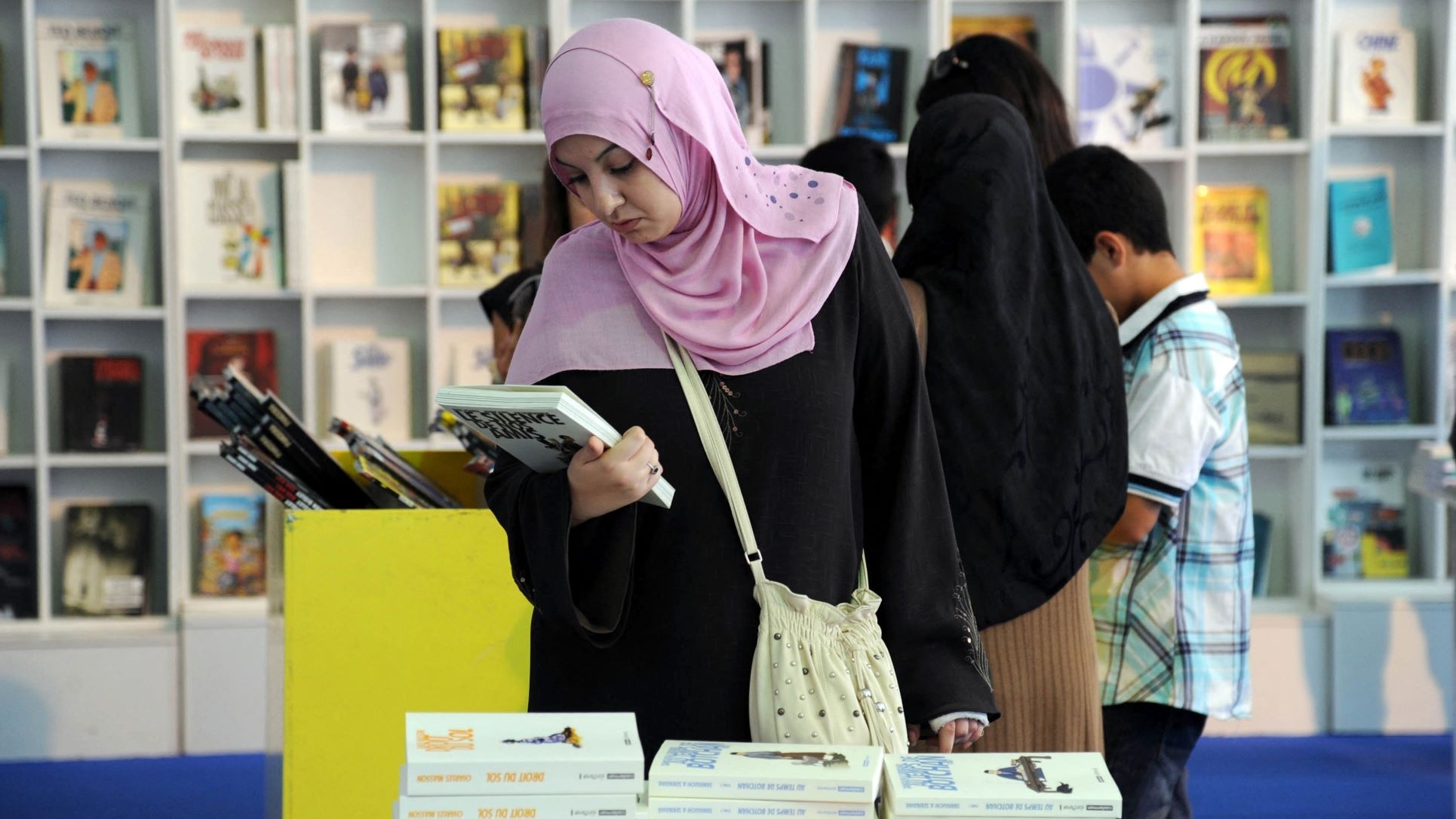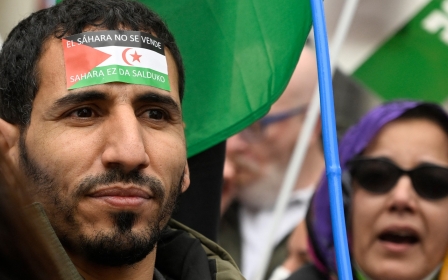Algeria: Primary schools to teach English in 'overdue' move away from 'colonial' French

Algeria's decision to move away from the French language, a byproduct of France's long and bloody colonial history in the North African country, and towards English has been perceived by many Algerians as long overdue.
"French is a spoil of war, but English is an international language," President Abdelmadjid Tebboune said in an interview on Saturday.
Algeria has long had a fraught relationship with France, following 130 years of French colonisation and an eight-year war of independence that left hundreds of thousands dead.
'I see it among my students, people are giving up on the French language and moving towards English'
- Abdelmadjid Bouguedra, university lecturer
Even after the French occupation ended in 1962, the country's political and business elite continued to use the French language, which was widely seen as distinguishing the civilised from the rest of society.
Stay informed with MEE's newsletters
Sign up to get the latest alerts, insights and analysis, starting with Turkey Unpacked
"Just 60 years overdue," a 30-year-old Algerian man told Middle East Eye, wryly, upon hearing the announcement.
While the initiative will not do away with French, it will see the English language, which is normally first taught in the first year of high school, introduced at primary school.
Abdennour Toumi, a North African studies expert at the Orsam Center in Ankara, described the current debate as going back almost 50 years. The phrase that French is "a spoil of war" was first uttered by Algerian poet Kateb Yacine at a "time where politicians, intellectuals and militants were debating the use of French on university campuses," Toumi told Middle East Eye.
Yacine considered the use of French as Algeria's national lingua franca "a neocolonial political machine, which only perpetuates our alienation".
"I believe this delicate issue need not be politicised; it should be left to experts," said Toumi, warning that "the national language, Arabic, is also facing serious problems", with students ranging from elementary school to university unable to master it.
English is a language of knowledge
Public pressure to loosen the colonial grip the French language continues to exert on the country's elite and wider society is being increasingly felt in government, said Abdelmadjid Bouguedra, a lecturer at the University of Oran 2 Department of English Language. He told MEE that there are several reasons this measure is being implemented now.
"The English language is one of knowledge, especially in the technical and the scientific fields. You can see the articles written in English are of better quality and larger quantity," he said.
Over the past year, several Algerian ministries have banned French in their official correspondence. Arabic and Tamazight, which is spoken by the Amazigh (or Berber) minority, may be Algeria's official languages, but it's only recently that government bodies have adopted them in official communications.
Some experts believe these developments should also be seen in the context of diplomatic tensions between France and Algeria.
"I think Algeria is somehow punishing France," said Bouguedra. "The French, for a long time, have abused the kind of relationship that existed with the political class in Algeria. They exploited the country to the point that they even forgot the good manners in politics, and they started to insert themselves into issues that were very insulting from a diplomatic point of view."
In an interview last year, French President Emmanuel Macron said that Algerian history had been built on "a discourse built on a hatred of France".
Macron has in recent years vowed that there would be "neither repentance nor apologies" for French massacres during its long occupation of Algeria, in remarks that have angered ordinary Algerians.
Algeria's protest movement, Hirak, has also catalysed the country's move away from French, noted Bouguedra.
"The political class has realised they were jeopardising their position with the population, and they are trying to make up for those failings," which among other things, Bouguedra said, include what many Algerians viewed as embarrassing servility towards France and the French language.
The Hirak saw millions of Algerians take to the streets in 2019, launching a rare, non-violent movement to get rid of political leaders they believe have strangled Algeria's political and economic development.
Now, according to Bouguedra, ordinary Algerians are seeking to steer away from the French language because it is widely seen as a significant factor in Algeria's "backwardness", and in opening up the country to English "they think there will be more economic opportunities".
The move towards English also reflects a growing generational divide in the country. From post-independence to the present, the Algerian elite has studied in French-speaking schools and French colonial schools.
"The French language is the main, if not the only, language they use to express themselves," said Bouguedra.
In the recent past, he recalled, the old elite, speaking in fluent French, used to "show off" to the younger generation that unless they "mastered the language, they wouldn't be able to work any position in the state. Those people were brought up knowing French better than they know Arabic. Some people still have that complex and believe that the colonial language is the language of the powerful and educated."
Such sentiment, however, is less pronounced among the younger generation.
"I see it among my students - people are giving up on the French language and moving towards English."
Middle East Eye delivers independent and unrivalled coverage and analysis of the Middle East, North Africa and beyond. To learn more about republishing this content and the associated fees, please fill out this form. More about MEE can be found here.




